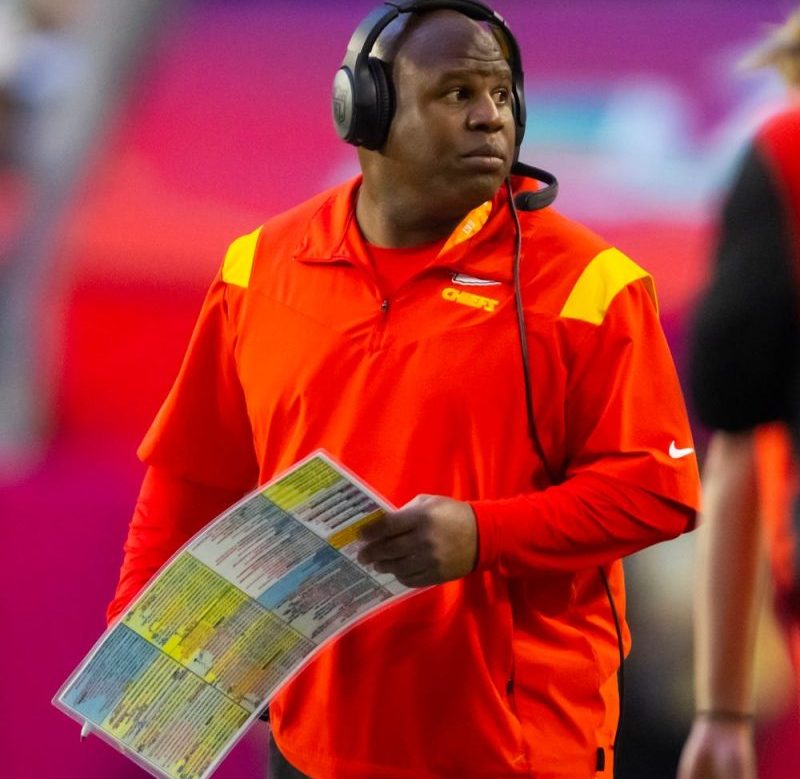The NFL and the Fritz Pollard Alliance can make a list from here to the moon and back of qualified minority candidates. They can hold “accelerator programs” every day of the year to introduce prospective Black and brown coaches to team owners.
None of it will matter. Because, with very few exceptions, NFL owners simply don’t want a Black or brown man to be their head coach.
Defensive coordinators, assistant coaches, even front-office executives – fine. But there’s no way they’re going to let a Black or brown man be the public face of their franchise, front and center on TV screens for the better part of three hours every Sunday.
And spare me the “Winning is all that matters, they’ll hire anyone!” blather. If that were actually true, explain to me why both the offensive and defensive coordinators of the team that lost the Super Bowl got fancy new jobs this week while the offensive coordinator of the team that won did not.
Aside from the new head coaches being white guys, that is.
Another NFL hiring cycle wrapped up Tuesday, and the results are as shameful as always. Of the five head coaches who were hired, just one is Black. That brings the grand total of Black head coaches to three, in a 32-team league where an estimated 60% of the players are Black.
Three other coaches identify as men of color.
“I think there’s progress, and we’re pleased to see progress. But it’s never enough,” NFL commissioner Roger Goodell said last week before the Super Bowl. “We always look to sort of say, ‘How can we do better?’ A number of the things we implemented last year have proven to be direct beneficiary of some of the changes that occurred.”
I’m not sure progress means what Goodell thinks it does.
Yes, the Tennessee Titans hired Ran Carthon as their GM after meeting him at an accelerator. Woo-hoo! That makes nine men of color now who are GMs or the equivalent and, in theory, that should eventually improve diversity when it comes to hiring head coaches.
But it’s the owners, almost all of whom are white and most of whom are men, who have the ultimate say. And their actions speak loud and clear.
Kansas City Chiefs offensive coordinator Eric Bieniemy has done everything possible to show he’s deserving of being a head coach. Tutored Patrick Mahomes, who is now a two-time MVP in both the regular season and the Super Bowl. Orchestrated a Kansas City offense that was No. 1 in the NFL twice in the last five years, including this season when the Chiefs no longer had Tyreek Hill.
Oh, and that second-half turnaround in the Super Bowl, when the Chiefs scored on every possession to erase a 10-point deficit and beat the Philadelphia Eagles 38-35? Bieniemy again.
“Eric Bieniemy was tremendous down the stretch there, putting things together,” Chiefs coach Andy Reid said after the game.
And yet, only one of the five teams with openings this year interviewed Bieniemy, and he didn’t make the Indianapolis Colts’ list of finalists. The Colts ultimately hired Eagles offensive coordinator Shane Steichen, with owner Jim Irsay saying he made his choice, “Knowing we’re going to have to find a young QB to develop.”
I’ll let that one sit there a while.
“There’s no reason he shouldn’t get one of these jobs,” Reid said Tuesday when asked about Bieniemy. “He’s too good of a football coach to not.”
Unfortunately, being good doesn’t seem to matter as much as being Black or brown.
The Buffalo Bills have had the No. 1 or No. 2 defense in three of the last four seasons, and defensive coordinator Leslie Frazier didn’t get a single interview. Steve Wilks went 6-6 and had the Carolina Panthers in playoff contention until Week 17 despite inheriting a sad-sack team and losing his best player less than two weeks later, and best he could get was another defensive coordinator job.
Jim Caldwell had the Detroit Lions’ only consecutive winning seasons in 30 years, and for that he now has the privilege of working for one of his white proteges in Carolina.
When asked about his sincerity to diversity, Panthers owner David Tepper effectively said, “But I have Black friends!” He noted the Panthers president is a woman and “we have two African-Americans” on the executive team.
“You break (the old boys’ network) by trying to get the best people possible in every role you can,” Tepper said.
But did he really?
Of the nine candidates Carolina interviewed, seven had offensive backgrounds, making it clear which way the Panthers were leaning. Of those seven, Caldwell was the only Black coach.
The two defensive-minded candidates? Wilks and Ejiro Evero, both of whom are Black.
‘We all want short-term results, but it’s important to have it be sustainable for the future,’ Goodell said.
Short-term? It’s been more than 30 years since Art Shell became the first Black head coach in the modern era, 20 since the Rooney Rule was first implemented, and every offseason is a reminder of how little progress has been made.
Goodell and the league office can encourage more diversity efforts and the public can continue shaming the NFL. But the owners are the only ones who can level the playing field for Black and brown coaches, and that’s just not going to happen in their back yards.
Follow USA TODAY Sports columnist Nancy Armour on Twitter @nrarmour.

